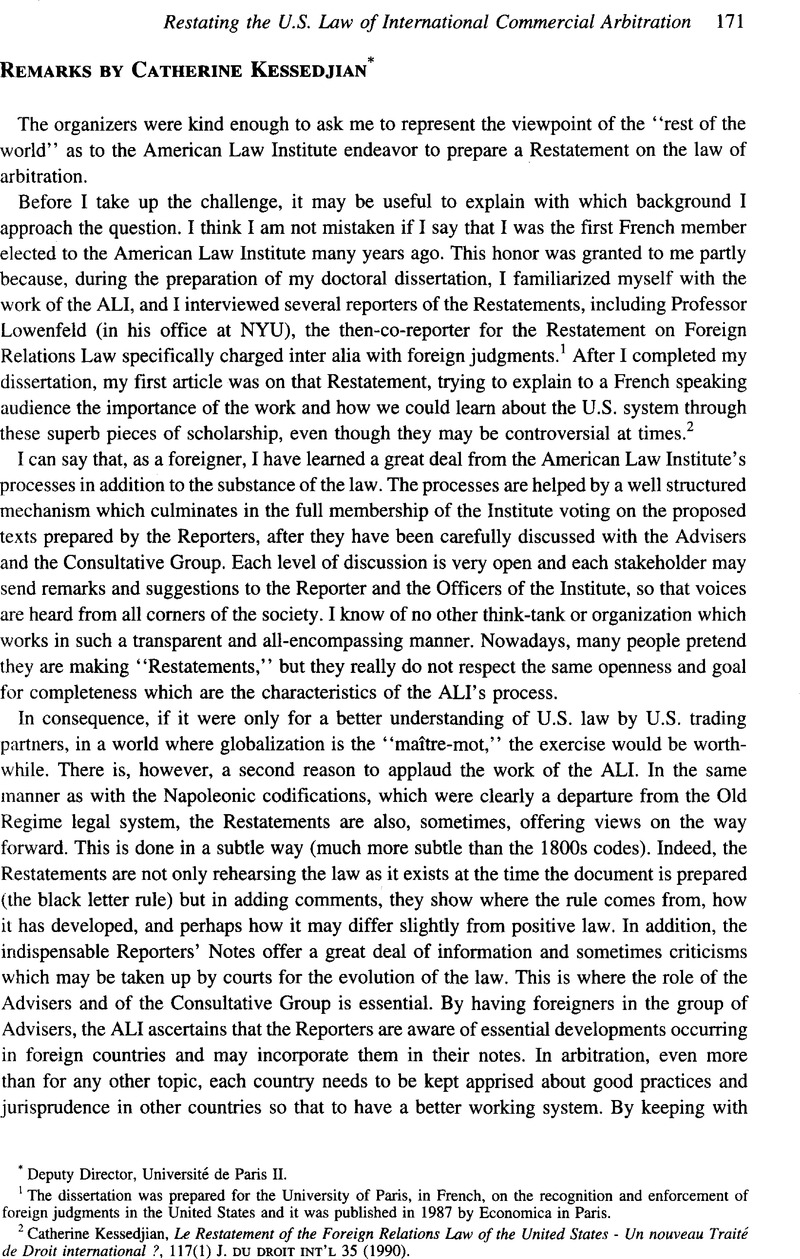Published online by Cambridge University Press: 28 February 2017

1 The dissertation was prepared for the University of Paris, in French, on the recognition and enforcement of foreign judgments in the United States and it was published in 1987 by Economica in Paris.
2 Kessedjian, Catherine, Le Restatement of the Foreign Relations Law of the United States - UN nouveau Traité de Droit international?, 117(1) J. Du Droit Int’l 35 (1990)Google Scholar.
3 In fact, it was a Swiss Professor, Pierre Lalive, who came up with the concept. The French legislation on arbitration does not use the concept even though it does organise the cooperation of the judge with the arbitration process. See Fouchard, Ph., >La coopération du Président du Tribunal de Grande instance à l’arbitrage, Rev. Arb. 50 (1985)Google Scholar. The draft reform of French arbitration rules proposed by the Comité français de l’arbitrage uses the concept in its Article 1460. See Rev. Arb. 491 (2006). I wish we had an equivalent in the English language. I have tried to translate it into “support judge”, but it does not sound quite right.